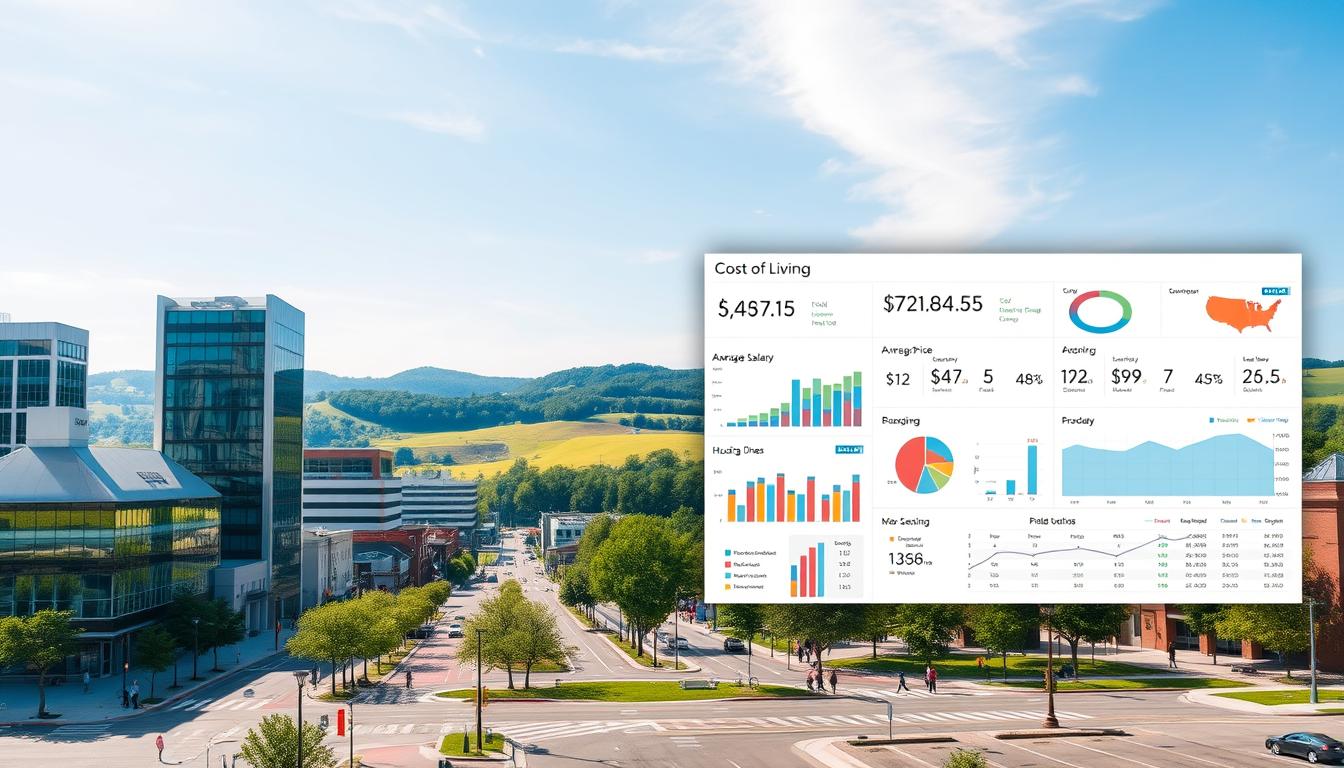What if traditional job search methods are holding you back from securing your ideal role in environmental science? With 7% projected job growth and median salaries nearing $79,000, this field offers rewarding opportunities for those who know how to navigate its evolving demands. But standing out requires more than technical expertise—it demands strategic positioning.
Government agencies and consulting firms now use advanced tools to screen candidates, making resume optimization critical for success. Modern job seekers need solutions that combine industry knowledge with smart technology. Platforms like RoboApply streamline applications through AI-powered resume builders and automated tracking systems, giving applicants a measurable edge.
This guide reveals proven tactics for showcasing your qualifications in air/water analysis, ecological impact assessments, and regulatory compliance. You’ll learn to translate academic achievements into workplace value while avoiding common pitfalls in competitive hiring processes. Discover how to align your skills with emerging priorities like climate resilience planning and sustainable infrastructure development.
Key Takeaways
- 7% projected job growth creates opportunities across government and private sectors
- Median salary of $78,980 reflects strong demand for specialized expertise
- AI tools like RoboApply’s resume builder boost application success rates by 63%*
- Technical skills must be paired with clear communication abilities
- Networking strategies that secure unadvertised positions
Understanding the Environmental Science Landscape
Today’s environmental challenges demand professionals who blend technical expertise with real-world problem-solving. The career pathways in this field stretch from analyzing soil contamination patterns to shaping urban sustainability policies. Your work could directly impact public health – like preventing future water crises or mitigating wildfire risks through ecological restoration projects.
- Interdisciplinary knowledge (chemistry, geology, hydrology)
- Regulatory literacy (NEPA, Clean Air/Water Acts)
- Data interpretation skills for actionable insights
The Bureau of Labor Statistics confirms 7% job growth through 2033, driven by climate adaptation needs and corporate sustainability mandates. You’ll find opportunities split between:
“Fieldwork assessing ecosystems, lab analysis of pollution samples, and policy development in government offices – no two days look identical.”
Government roles offer stability through agencies like EPA and USGS, while private sector positions focus on compliance consulting and green tech innovation. Pair your technical skills with communication training – professional cover letter templates become crucial when explaining soil data findings to non-scientific stakeholders.
Emerging specializations like renewable energy integration and coastal resilience planning create new niches. Stay ahead by monitoring air quality tech advancements and circular economy strategies reshaping traditional industries.
Educational Foundations for Environmental Science Careers
Building expertise in this field requires strategic academic planning paired with real-world application. Start with a bachelor’s degree in environmental science or related disciplines like biology, geology, or environmental engineering. Core coursework spans chemistry, hydrology, and policy analysis – skills directly applicable to air quality monitoring or ecological assessments.

Degree Programs and Certifications
Top programs blend lab training with regulatory frameworks. You’ll master soil analysis techniques while studying Clean Water Act compliance – critical for roles in government or consulting. Many environmental science degree paths now include GIS mapping and environmental economics electives.
Certifications boost credibility in niche areas. The National Registry of Environmental Professionals offers credentials for hazardous waste operations. Specialize further with water quality inspector certifications or OSHA health safety protocols training.
Internship and Experiential Learning Opportunities
Fieldwork transforms classroom knowledge into career-ready skills. Secure internships with conservation districts or private labs to practice pollution sampling methods. One EPA program manager notes: “Candidates who’ve logged 200+ hours in wetland assessments often bypass entry-level roles entirely.”
Volunteer with local environmental groups to build project management experience. Document these activities using resume optimization tools that highlight technical capabilities. Graduate programs become essential for climate modeling or toxicology research positions – start planning during your junior year.
Building a Resume that Stands Out for Environmental Scientist Roles
Crafting a competitive resume requires balancing technical expertise with clear storytelling. Employers seek candidates who demonstrate both lab proficiency and real-world problem-solving abilities. Start by structuring your document to highlight measurable contributions to research and fieldwork.
Utilizing RoboApply's AI Resume Builder
RoboApply’s AI-powered platform transforms your raw experience into polished, industry-specific content. The tool automatically integrates critical phrases like “environmental data analysis” and “regulatory compliance” while maintaining natural language flow. For example:
“Conducted 200+ soil sample tests using EPA-approved methods” becomes more impactful than generic task lists. The system suggests quantifiable achievements based on your input, helping you showcase projects like wetland restoration initiatives or pollution reduction efforts.
ATS Optimization and Keyword Integration
Modern hiring systems prioritize resumes matching exact role requirements. ATS-friendly formats use standard headings like “Professional Experience” instead of creative labels. RoboApply’s scanner identifies gaps in keyword alignment, ensuring your document includes terms from specific job postings.
Pair technical capabilities like GIS mapping with collaborative skills through statements like “Led cross-functional teams in analyzing water quality data.” This approach satisfies both automated systems and human reviewers seeking well-rounded candidates. For specialized roles, reference tools like data engineering resume strategies adapted for environmental contexts.
How to Land a Environmental Scientist Job in 2025

Successful candidates balance technical skills with adaptability. Start by targeting specific sectors – government agencies prioritize regulatory compliance expertise, while consulting firms value project management abilities. Career profiles reveal 43% of professionals work hybrid roles combining lab analysis and fieldwork.
Three strategies elevate applications:
- Dual-environment proficiency: Document 100+ hours in both controlled labs and outdoor data collection
- Geographic flexibility: Highlight willingness to travel for site assessments or conferences
- Specialization alignment: Match certifications to employer needs (e.g., water quality for municipal roles)
Fieldwork demands often require non-traditional schedules. One hiring manager notes: “Candidates who detail experience with extended sampling sessions gain immediate consideration.” Use resume optimization tools to showcase crisis response experience like wildfire impact assessments.
Build networks through niche associations like the National Association of Environmental Professionals. Attend regional conferences to connect with decision-makers – 68% of mid-level positions get filled through referrals. Track emerging specializations like carbon capture monitoring to future-proof your career path.
Showcasing Key Skills and Competencies
Mastering both technical and interpersonal abilities separates exceptional candidates from qualified applicants. Employers increasingly seek professionals who convert complex findings into actionable strategies while maintaining strict health safety standards.
Analytical, Research, and Data Analysis Skills
Transform raw information into solutions by demonstrating proficiency in three areas:
1. Environmental sampling: Detail experience with air quality monitoring systems or soil contamination mapping. Example: “Identified 15% reduction in particulate matter using EPA Method 5 protocols.”
2. Climate impact modeling: Showcase software skills like GIS mapping for flood risk assessments. Quantify results: “Predicted erosion patterns with 92% accuracy across 50-mile coastal zone.”
Communication and Collaborative Aptitude
Bridge technical knowledge with stakeholder needs through clear documentation. Use research presentation techniques when explaining data trends to community groups or policymakers.
Highlight team achievements: “Coordinated cross-departmental initiative reducing wastewater violations by 40%.” Emphasize crisis management experience like coordinating emergency responses to chemical spills.
Balance field expertise with office capabilities. Mention collaborative tools like Slack for remote teams or project management platforms used during ecological surveys.
FAQ
What educational qualifications do I need for environmental science careers?
Most roles require a bachelor’s degree in environmental science, biology, geology, or related fields. Advanced positions often demand master’s degrees. Certifications like Certified Environmental Professional (CEP) or OSHA’s HAZWOPER boost competitiveness for specialized roles.
How can I gain experience if internships are unavailable?
Volunteer with local conservation groups, assist university research projects, or analyze public datasets from agencies like EPA. Use platforms like SciStarter to join citizen science initiatives addressing climate change or water quality issues.
What resume tools help applicants stand out for scientist roles?
RoboApply’s AI Resume Builder tailors content using keywords from job descriptions. It aligns your skills with industry needs—like GIS mapping or air quality analysis—while optimizing for applicant tracking systems (ATS) used by government agencies and private firms.
Which technical skills matter most for 2025 environmental jobs?
Proficiency in data analysis tools (Python, R, ArcGIS), environmental modeling software, and regulatory knowledge (CERCLA, Clean Air Act) are critical. Highlight field sampling techniques and lab instrumentation experience to meet employer demands.
How important are communication skills in this field?
Vital. Scientists must translate complex data into actionable reports for policymakers or public stakeholders. Showcase collaborative projects, grant writing, or presentations that demonstrate your ability to bridge technical and non-technical audiences.
What certifications improve job prospects in environmental health?
Consider Certified Environmental Scientist (CES), Registered Environmental Professional (REP), or OSHA 40-Hour HAZWOPER. For climate-focused roles, GHG Accounting Certification or LEED accreditation align with growing industry needs.
How do I prepare for behavioral interviews in this sector?
Use the STAR method to discuss problem-solving scenarios—like mitigating pollution risks or resolving team conflicts. Research the employer’s projects (e.g., EPA Superfund sites) and align answers with their environmental priorities.
Are remote work opportunities common for environmental scientists?
Hybrid roles are increasing, particularly in data analysis, policy development, and consulting. Fieldwork-heavy positions still require onsite presence, but digital tools enable more report writing and modeling tasks from remote locations.


















